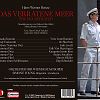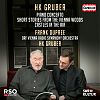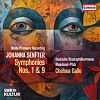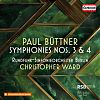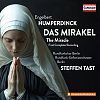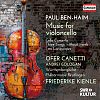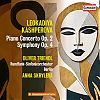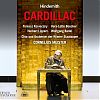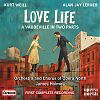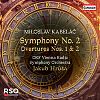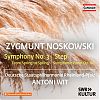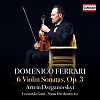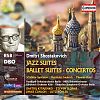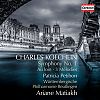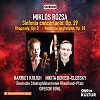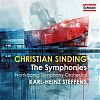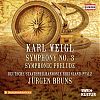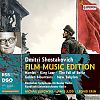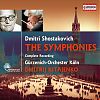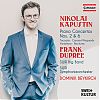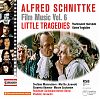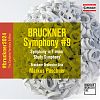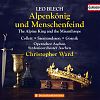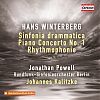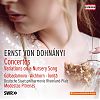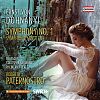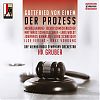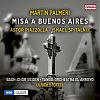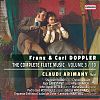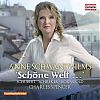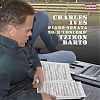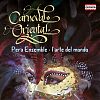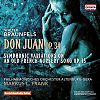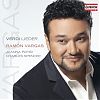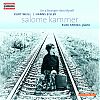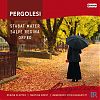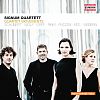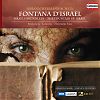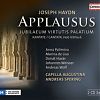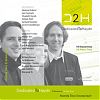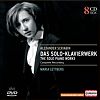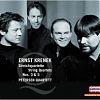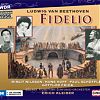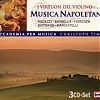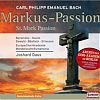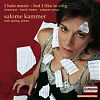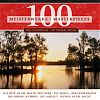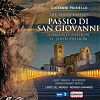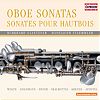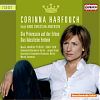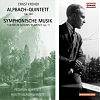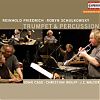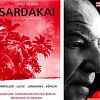cd

40th ANNIVERSARY - Sampler
Christine Schäfer · Bo Skovhus · Hermann Prey · Tzimon Barto · Vladimir Spivakov · Concerto Köln · Herbert Kegel · Dmitri Kitajenko · Christoph Eschenbach
It’s time to take a moment and be grateful: It’s been 40 years that the Capriccio label has produced records – through and despite all the upheavals and vast market shifts in the recording industry over the last decades. As the young label started out in 1982, still producing LPs and tapes, it was the first digital Beethoven Symphony cycle with the Dresden Philharmonic and Herbert Kegel (issued on CD two years later, in 1984) that first turned heads. Today, Capriccio’s catalog includes well over 1,000 titles with a repertoire that stretches all the way from the renaissance to contemporary composers, is chock-full of re-discoveries and world premieres, and is performed by a steadily growing roster of internationally renowned artists. Time to celebrate? Why, absolutely. But also time to reflect on the fact that in these times, in the middle of the digital revolution as we find ourselves, it’s hardly a given anymore to be able to continuously produce and publish classical records. Therefore this is also the time to thank our artists, our team, which operates in the background all over the world, and all our supportive accomplices and abettors who have contributed so much to the continuity and success of this label. Happy Birthday to all of us! (JK)
Youtube
Weitere Bilder

#bruckner24 Symphony in D minor (Nullte / Nullified)
BRUCKNER ORCHESTER LINZ Markus Poschner
The most comprehensive Bruckner Symphonies cycle, including all 19 available versions.
This third release of Capriccios Bruckner Edition, of Symphony in D minor ("Nullified") is performed by Bruckner Orchestra Linz conducted by Markus Poschner.
Although the work did not belong to the corpus of nine numbered symphonies which the composer had identified in his will as worthy of preservation in the imperial library, and for which he is best remembered, he did not destroy it. Hoping perhaps, to ensure that future generations would assess the symphony in what he considered its proper perspective, he wrote annotations at various places in the manuscript: “invalid” [ungiltig] “completely void” [ganz nichtig] and “annulled” [annulirt]. This new complete Bruckner Symphonies edition from Capriccio reassesses these enduringly enigmatic and complex works. Presented by the Bruckner Orchestra Linz and the ORF Vienna Radio Symphony Orchestra, and featuring all 19 available versions, the cycle is scheduled for completion in 2024, Bruckner’s 200th birthday.
Youtube
Weitere Bilder

Hanns Eisler
HK Gruber · Wolfram Berger · Klangforum Wien · Ensemble 'die reihe'
“It would be worth striving towards a style that can combine the highest level of craftsmanship, originality, and high quality with the greatest popularity and folksiness.” – Hanns Eisler
This latest release in Capriccio's Hanns Eisler Edition contains songs and chansons from all periods of Eisler’s creative life. It also contains some of the fascinating orchestral suites that he had mostly assembled as adaptations of film scores from the 1930s. Notably, the programme contains the world premiere recording of his incidental music for Die letzte Nacht – the epilogue to Karl Kraus‘ monumental, satirical work The Last Days of Mankind. The mastermind behind this project was the great composer, conductor, and chansonnier HK Gruber, arguably one of the greatest authorities on Eisler.
Hörprobe
Weitere Bilder

MIECZYSŁAW WEINBERG: DIE PASSAGIERIN
Chor der Oper Graz · Grazer Philharmoniker · Roland Kluttig
Opera in two acts, eight scenes and one epilogue Op. 97 (1968)
Libretto: Alexander Medvedev after the novel by Zofia Posmysz
Lisa: DSHAMILJA KAISER
Marta: NADJA STEFANOFF
Walter: WILL HARTMANN
Tadeusz: MARKUS BUTTER
CHOR DER OPER GRAZ
(Einstudierung / Chorus Master: Bernhard Schneider)
GRAZER PHILHARMONIKER · ROLAND KLUTTIG Dirigent/conductor
‘I simply cannot stop enthusing about Weinberg’s The Passenger. I’ve heard it three times now, studied the score, and every time I understand more of the beauty and greatness of this music. It is a work of consummate form and style and its subject extremely relevant.’ – Dmitri Shostakovich
In 1960, Lisa – formerly a guard at Auschwitz and now the wife of a West German diplomat – is on an ocean liner bound to Brazil. She thinks she recognises in another passenger a woman named Martha, a Polish prisoner under her direct jurisdiction. Through a series of flashbacks across two acts, eight scenes and one epilogue, the audience witnesses the final reckoning between two women as they attempt to escape their pasts. The Passenger premiered in 2010 at the Bregenz Festival. With this new production by Oper Graz composer Mieczysław Weinberg’s powerful Holocaust drama continues to gain international recognition.
Youtube
Weitere Bilder

HENZE: DAS VERRATENE MEER
Bo Skovhus · Vera-Lotte Boecker · Josh Lovell · Orchester der Wiener Staatsoper · Simone Young
‘I find myself increasingly occupied with matters of the human soul, its sublimation and spiritual abyss. Certainly my opera The Ocean Betrayed betrays this preoccupation. This music has been to Hades and back, with Monteverdi and myself.’ Hans-Werner Henze based the story for Das verratene Meer (‘The Sea Betrayed’) on Japanese writer Yuko Mishima’s 1963 novel, Gogo no Eiko (‘The Sailor Who Fell from Grace with the Sea’). The book offers an unsettling scenario ‘in which the struggle for normality is doomed to failure’. A young widow, Fusako, falls for a merchant navy officer, Ryuji, creating tension with her son, Noboru, who belongs to a violent gang that will exact revenge on the widow’s lover. Through symphonic interludes, the ‘angry, betrayed sea’ becomes the drama’s witness and its narrative voice in Henze’s painfully dark and brutal opera.






